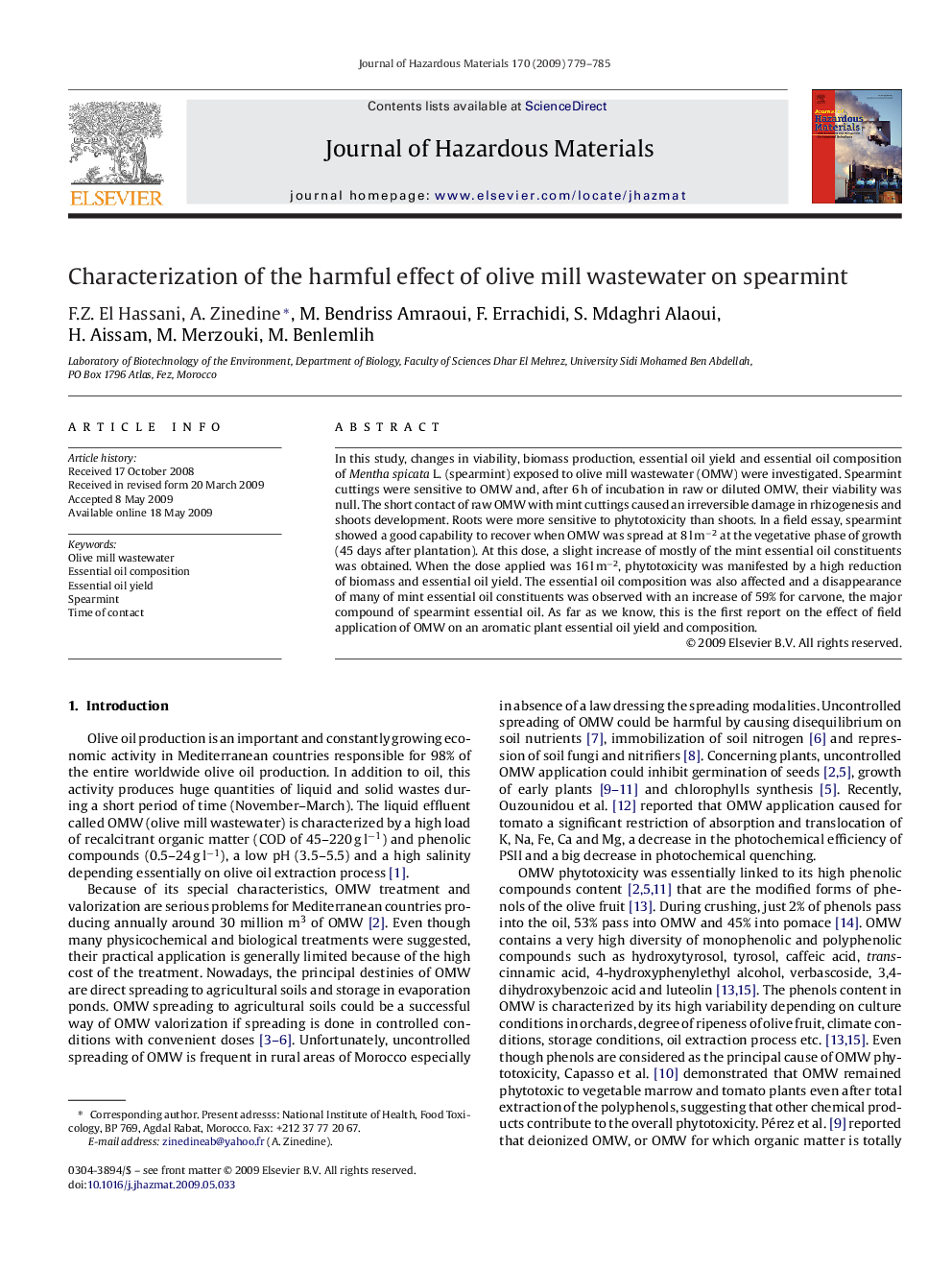| Article ID | Journal | Published Year | Pages | File Type |
|---|---|---|---|---|
| 581234 | Journal of Hazardous Materials | 2009 | 7 Pages |
Abstract
In this study, changes in viability, biomass production, essential oil yield and essential oil composition of Mentha spicata L. (spearmint) exposed to olive mill wastewater (OMW) were investigated. Spearmint cuttings were sensitive to OMW and, after 6 h of incubation in raw or diluted OMW, their viability was null. The short contact of raw OMW with mint cuttings caused an irreversible damage in rhizogenesis and shoots development. Roots were more sensitive to phytotoxicity than shoots. In a field essay, spearmint showed a good capability to recover when OMW was spread at 8 l mâ2 at the vegetative phase of growth (45 days after plantation). At this dose, a slight increase of mostly of the mint essential oil constituents was obtained. When the dose applied was 16 l mâ2, phytotoxicity was manifested by a high reduction of biomass and essential oil yield. The essential oil composition was also affected and a disappearance of many of mint essential oil constituents was observed with an increase of 59% for carvone, the major compound of spearmint essential oil. As far as we know, this is the first report on the effect of field application of OMW on an aromatic plant essential oil yield and composition.
Related Topics
Physical Sciences and Engineering
Chemical Engineering
Chemical Health and Safety
Authors
F.Z. El Hassani, A. Zinedine, M. Bendriss Amraoui, F. Errachidi, S. Mdaghri Alaoui, H. Aissam, M. Merzouki, M. Benlemlih,
